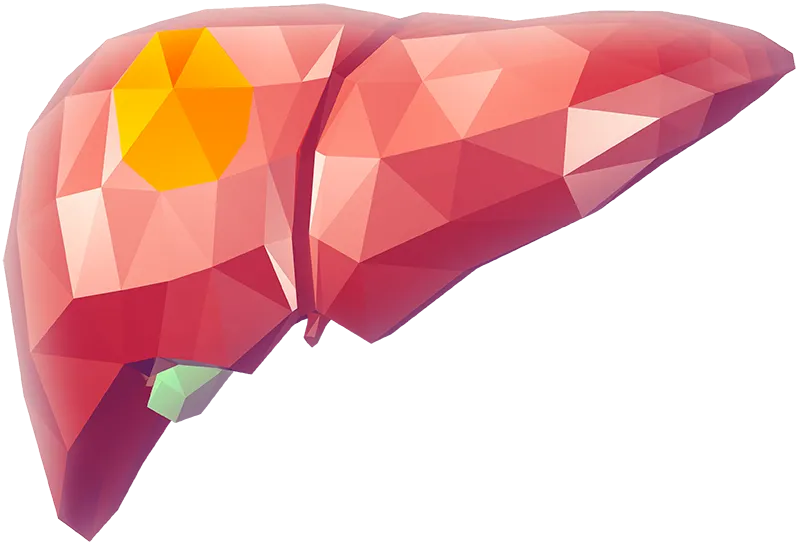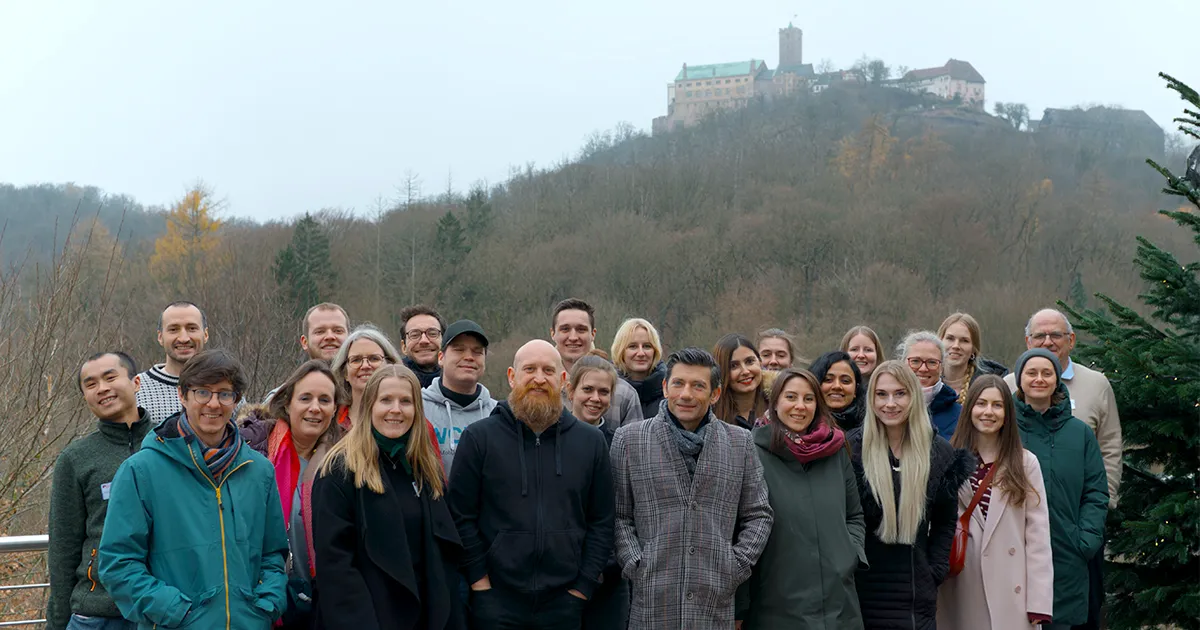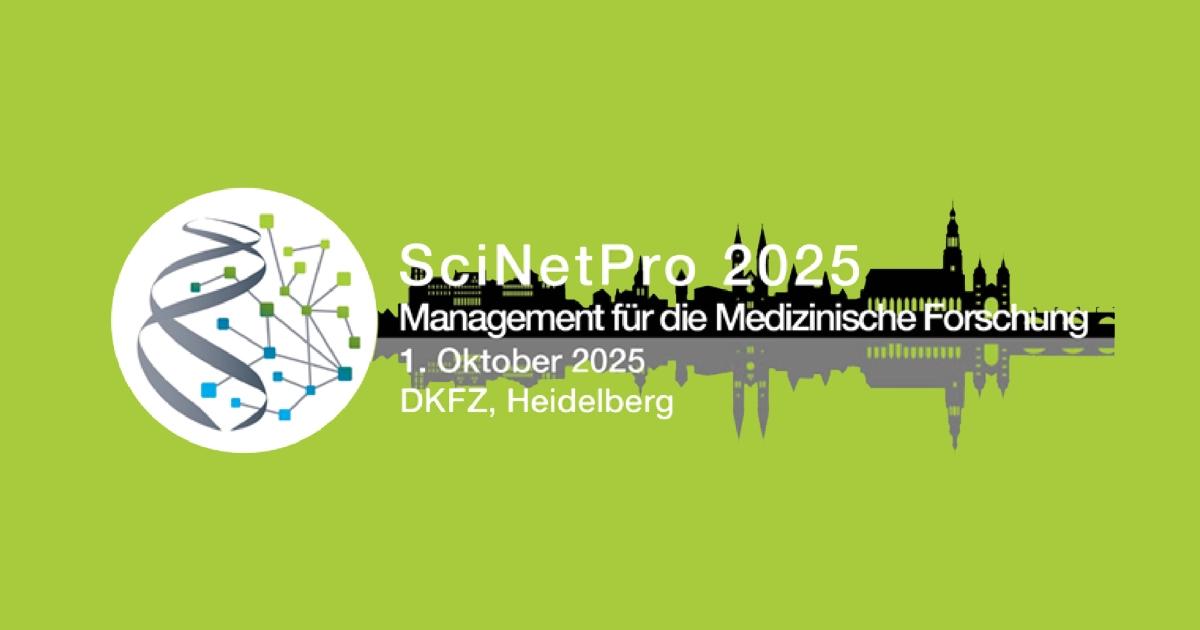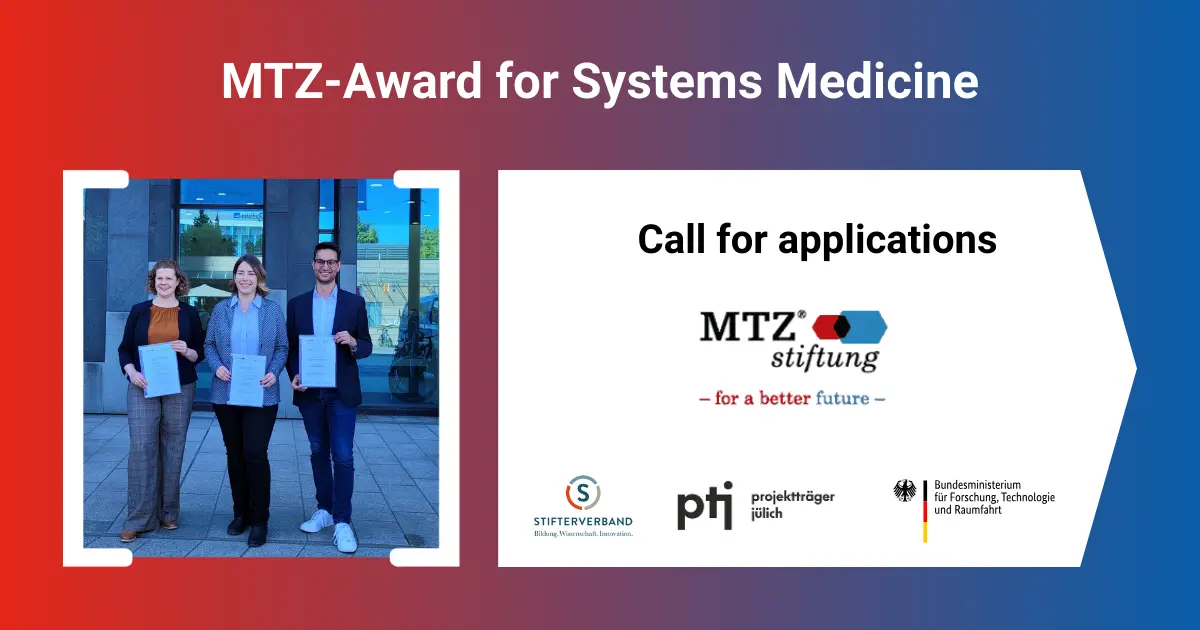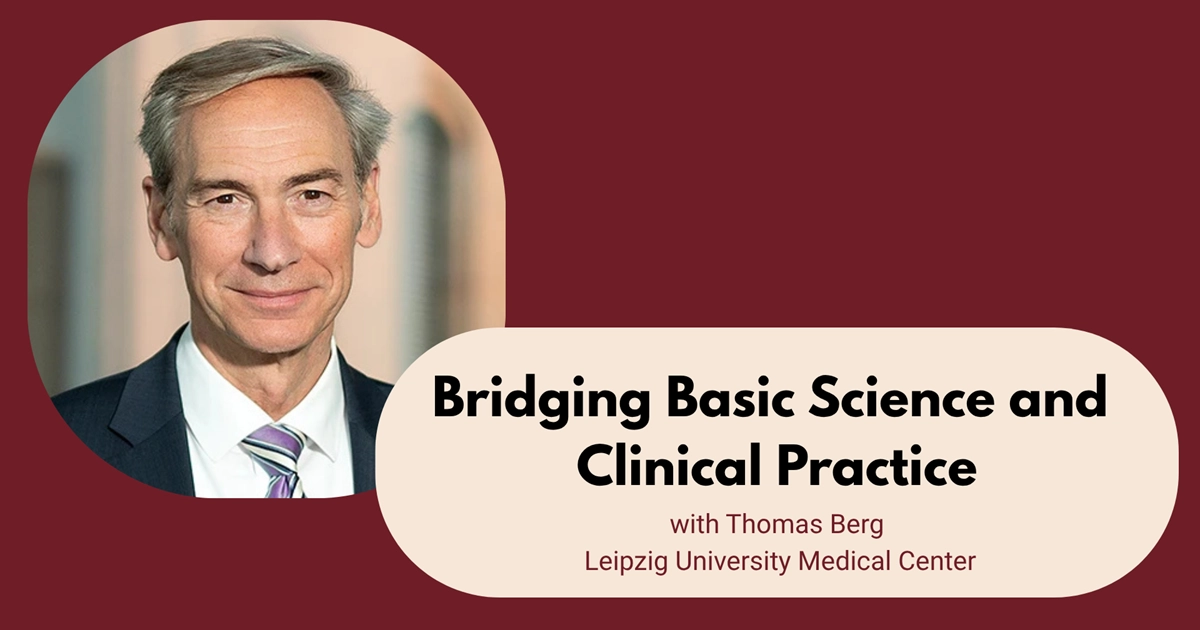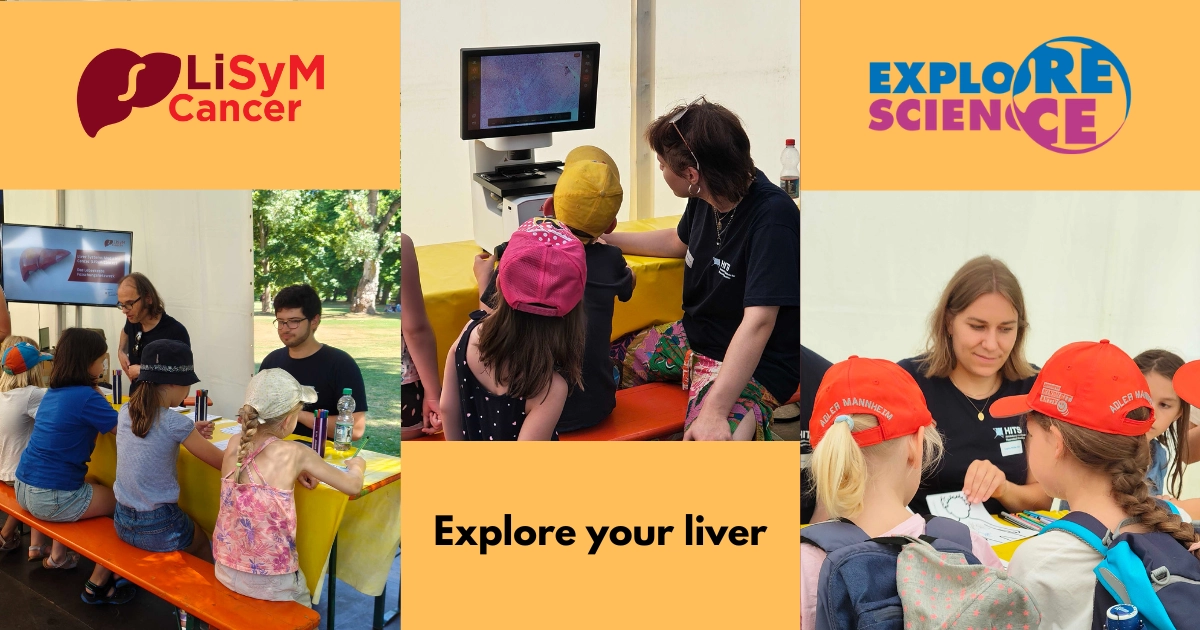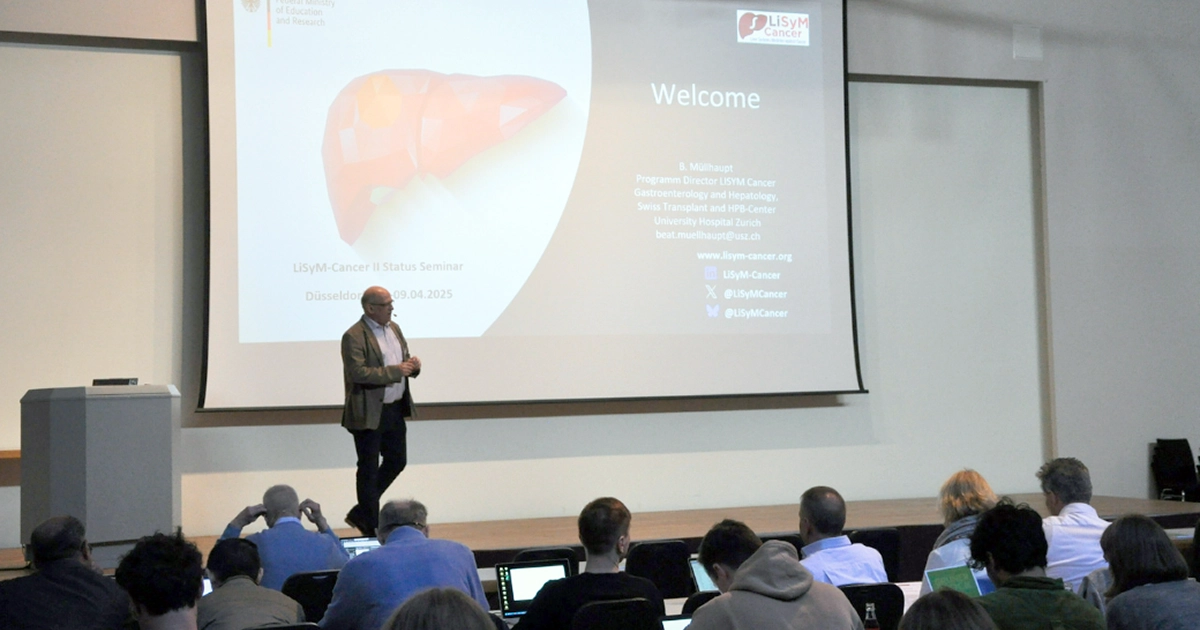LiSyM-Cancer Mission
Liver Systems Medicine Cancer – LiSyM-Cancer – is a multidisciplinary research network funded by the Federal Ministry of Research, Technology and Space (German: Bundesministerium für Forschung, Technologie und Raumfahrt, BMFTR) within the Framework of the National Decade Against Cancer. The funding period is July 2024 until June 2027.
More info on the funding program: "Funding of a Systems Medicine Research Network for the Early Detection and Prevention of Liver Cancer".
The LiSyM-Cancer research network builds on the achievements of the previous network LiSyM (funding period 2016 to 2021). The main focus was extended to liver cancer in phase I (funding period 2021 to 2024) and now towards clinical application in phase II.
In the LiSyM-Cancer network, molecular and cell biologists, clinical researchers and experts in mathematical modeling are jointly conducting research to investigate the development of liver cancer from pre-existing conditions such as non-alcoholic fatty liver or liver cirrhosis. The aim of the joint project is to identify relevant biomarkers to diagnose and prevent hepatocellular carcinoma (HCC) at early stages.
LiSyM-Cancer furthermore addresses the following questions:
- What are the similarities and differences of the HCCs arising in patients with fatty liver disease in the absence of cirrhosis versus those that develop in patients with liver cirrhosis?
- Which factors or mechanisms explain that men are significantly more likely to develop liver cancer than women?
- Which components in the blood reflect a crossing of the tipping points for liver cancer development and could be used as biomarkers for early detection?
- Which parameters of tipping point exceedance could serve as target structures that prevent or significantly delay the development of HCC?

